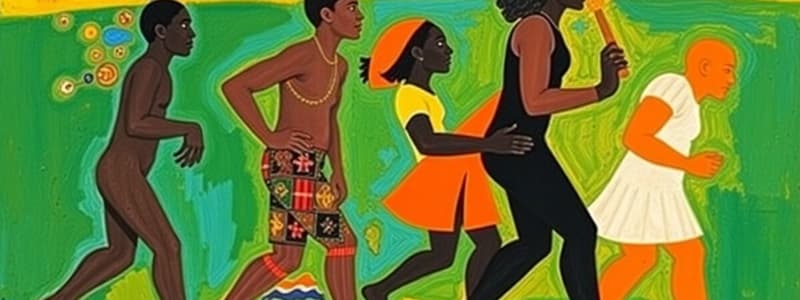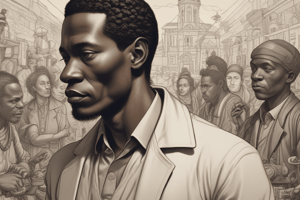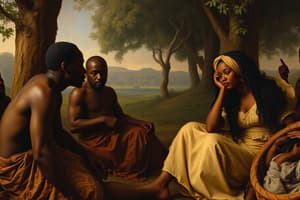Podcast
Questions and Answers
What was a significant impact of the institution of slavery on society?
What was a significant impact of the institution of slavery on society?
- It eliminated the concept of race in society.
- It unified the social structure of slaves.
- It created a mutual respect between races.
- It detached slavery from its initial function. (correct)
What challenge arose after the death of slavery?
What challenge arose after the death of slavery?
- The prevention of federal intervention.
- The eradication of all social classes.
- The establishment of racial equality.
- The need for new institutions to maintain white control. (correct)
What passion drove many white Southerners after the Civil War?
What passion drove many white Southerners after the Civil War?
- The ambition to create a new racial order. (correct)
- The desire to abolish all forms of racial distinction.
- The hope to revive the institution of slavery.
- The effort to integrate freed slaves into society.
What ultimately happened to the black codes that aimed to control freed slaves?
What ultimately happened to the black codes that aimed to control freed slaves?
What legislation followed the overturning of the black codes?
What legislation followed the overturning of the black codes?
What was unclear following the Civil War regarding societal control?
What was unclear following the Civil War regarding societal control?
What does the continuation of the idea of race after slavery suggest about societal attitudes?
What does the continuation of the idea of race after slavery suggest about societal attitudes?
Flashcards are hidden until you start studying
Study Notes
The Idea of Race
- The institution of slavery was established and evolved independently from its initial function.
- The death of slavery did not end the idea of race.
- White Southerners sought to establish a new racial order following the Civil War.
- The black codes were established to maintain white control.
- The black codes were overturned by federal civil rights legislation.
The Legacy of Slavery in the South
- Slavery in the South was initially justified as a necessary evil.
- However, the institution evolved and became a deeply ingrained part of Southern society.
- The idea of race persisted even after the abolition of slavery.
- White Southerners sought to establish a new racial order following the Civil War.
- Black codes were implemented to attempt maintain white control over freed slaves.
- Federal civil rights legislation was passed to overturn black codes and protect the rights of newly freed slaves.
Studying That Suits You
Use AI to generate personalized quizzes and flashcards to suit your learning preferences.




